GENERAL SITUATION IN MEXICO
Weekly Review I July 9, 2025





Weekly Review I July 9, 2025








• IMSS reported a net loss of 46,378 formal jobs in June 2025, marking the third consecutive month of contraction in formal employment. Over April–June, more than 139,000 positions were lost.
• Job creation in 1H-2025 totaled just 87,287 positions, down 70% compared to the same period in 2024.
• Despite weak hiring, total formal employment remains high at 22.3 million jobs, and the share of permanent contracts hit 87.5% — the highest for June in 16 years.
• The average IMSS-reported salary rose to $628.8 pesos/day, up 7.5% YoY, which helps offset the impact of job losses on household income.
• Wage growth outpaced inflation, improving real purchasing power. However, fewer jobs mean lower aggregate demand, especially in low-income households.
• Retail sales are showing mixed signs. After falling 2% in April, they began stabilizing in May–June, but falling remittances (-4.6% YoY in May) may limit a rebound.
• Banxico cut rates to 8.0% in June but may slow further easing. Wage-driven inflation may keep core inflation sticky, making •
• If job losses continue, informality could rise, reducing tax collection and weakening formal benefit coverage.

• Sectors still expanding: Retail (+2.9%), utilities (+1.5%), and transport (+1.4%) supported by urban demand and logistics.
• Sectors under pressure: Construction (-8.2%) and mining (-4.6%) due to delayed projects and weaker commodity prices.
• Regions with growth: Nuevo León, State of Mexico, and Michoacán show job growth above 2%, driven by manufacturing and logistics.
• Regions in decline: Tabasco, Campeche, and Zacatecas saw job losses >3%, tied to mining and energy downturns.
• Job growth may partially recover in Q3, but it’s unlikely to reach historic levels (200K). A rebound of ~120K is more realistic unless remittances and construction activity improve.
• Monitor short-term indicators like remittances, retail spending, and VAT collections to gauge demand.
• Prepare for uneven consumer behavior, especially in regions dependent on cross-border income and public works.
SOURCE: EL ECONOMISTA
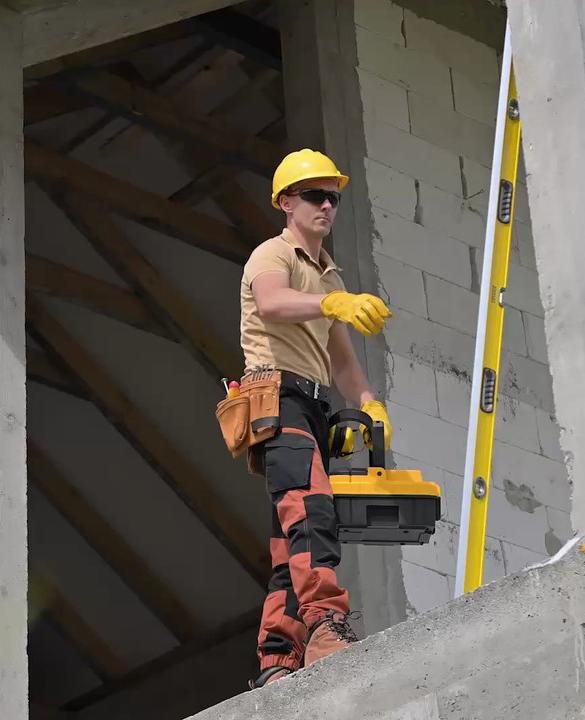
Background:
• In May 2025, remittances sent to Mexico fell by 4.6% year-on-year, totalling $5.36 billion across 13.9 million transactions.
• While individual transaction amounts slightly increased, the total number of transactions dropped 5.7%.
• This decline coincides with the U.S. Congress debating a 1% tax on cash remittances, down from an earlier 3.5% proposal.
• Mexico is the world’s second-largest recipient of remittances, mostly sent by Mexican workers in the United States.
• The drop in remittances represents a concerning trend, especially given Mexico’s reliance on this income for household consumption and economic stability.
• It was the third decline so far this year and the steepest since 2013. Analysts attribute the drop to reduced migration and saturation of remittance-sending capacity among Mexican migrants.
• Mexico’s dip contrasts with rising remittances in Central American countries, suggesting diverging regional dynamics.

• The proposed remittance tax—now limited to cash transactions—reflects rising protectionist and enforcement-focused sentiment in U.S. policy under Trump.
• However, experts warn this tax could drive more transactions underground or into digital channels and affect bilateral relations and migrant welfare.
• U.S. officials face criticism over potential treaty violations and the risk of targeting communities that are already paying U.S. taxes.
• President Claudia Sheinbaum voiced strong support for Mexican migrants and initially proposed a reimbursement plan.
• However, she later clarified that her government would instead promote the use of Finabien cards— electronic transfer tools distributed through consulates—to help migrants avoid the tax.
• Mexico is also monitoring the bill’s progression and may coordinate with other affected countries to respond to the tax if implemented.
SOURCE: REUTERS

PUBLIC SECURITY
• DECREE BILL DISCUSSION REPORT TO ISSUE THE LAW OF THE NATIONAL INVESTIGATION AND INTELLIGENCE SYSTEM ON PUBLIC SECURITY
Presented by: Joint Committees on Public Security; Legislative Studies
Objective: Create a legal framework for coordinating criminal intelligence and investigation nationwide. Strengthens data systems, protects information, ensures human rights compliance, and formalizes cooperation among institutions.
Status: 2025-07-01 – Approved, sent to the Federal Executive
• BILL WITH DECREE TO AMEND THE FEDERAL LAW FOR THE PREVENTION AND IDENTIFICATION OF OPERATIONS WITH RESOURCES OF ILLICIT ORIGIN,
Presented by: Senate of the Republic
Objective: Improves anti-money laundering and counter-terrorism financing regulations by updating definitions, strengthening oversight, mandating risk-based approaches, and enhancing inter-agency coordination.
Status: 2025-06-30 – Approved, sent to the Federal Executive

• BILL WITH DECREE TO AMEND THE FEDERAL ECONOMIC COMPETITION LAW AND THE FEDERAL LAW ON STATE-OWNED ENTITIES
Presented by: Senate of the Republic
Objective: Proposes key reforms to strengthen antitrust enforcement, including the creation of a new National Antitrust Commission, adjustments to regulatory frameworks, enhanced powers and procedures to combat monopolies.
Status: 2025-06-30 – Approved, sent to the Federal Executive
• DECREE TO ISSUE THE LAW ON TELECOMMUNICATIONS AND BROADCASTING
Presented by: Senate of the Republic
Objective: Establish comprehensive regulations on telecommunications, broadcasting, and satellite use to improve service quality, promote competition, expand connectivity, and protect user rights.
Status: 2025-07-01 – Approved, sent to the Federal Executive

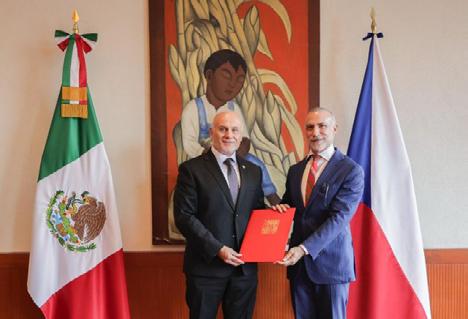

From July 8 to 10, 2025, the Czech ambassador to Mexico, Tomáš Hart, is visiting Baja California to explore investment and collaboration opportunities. His agenda focuses on economic, cultural, and institutional dialogue, beginning in Tijuana at the Honorary Consulate. Hart aims to better understand the region’s industrial and social landscape to promote it among Czech companies. Key sectors of interest include advanced manufacturing, technology, arts, and workforce mobility. The visit includes meetings with the Tijuana Business Coordinating Council and tours of local companies, including Turbo Tech, which operates in both countries. Cultural elements like a tour of the border and the Guadalupe Valley are also part of the program.
SOURCE: INDUSTRIAL NEWS BC

Index Sonora is coordinating efforts as the U.S. semiconductor industry begins recruiting bilingual Mexican engineers in the last quarter of 2025 to train and work on various phases of projects running through 2032, according to Jesús Gámez García, president of Index. States like Arizona and Texas are expected to demand over 130 bilingual engineers with problem-solving skills, prompting recruiting efforts in Mexican regions such as Baja California, Sonora, Chihuahua, Querétaro, and Jalisco. These professionals will receive temporary work visas, be trained in phased programs, and later be followed by bilingual technicians. Salaries range from $70,000 to $90,000 annually, making the opportunity attractive and beneficial for Mexico as trained talent returns to the country.
SOURCE: MILENIO

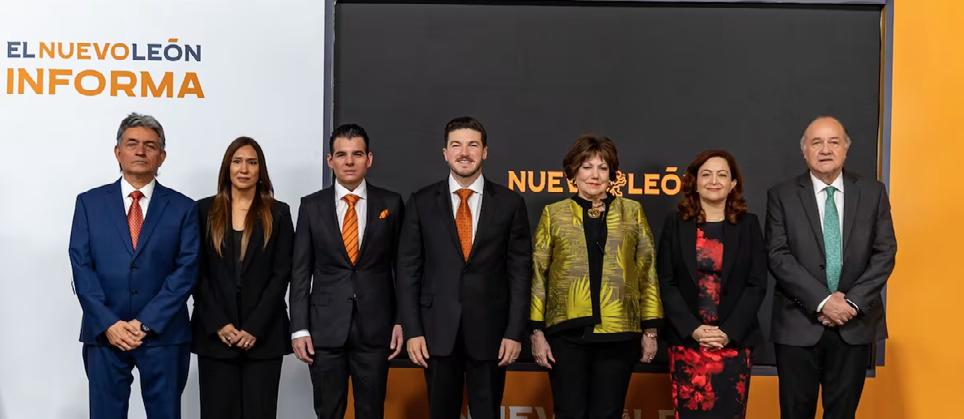

Nuevo León’s business sector supports Betsabé Rocha’s appointment as Secretary of Economy, citing her experience and leadership as a source of certainty after months of interim leadership. Private sector leaders and business chambers welcomed her technical background, experience across government levels, and ability to coordinate public-private efforts. Caintra Nuevo León emphasized that her private sector insight brings valuable understanding of business challenges. Rocha, who has held roles including interim mayor and
Chief of Staff in Monterrey, is expected to present a plan focused on innovation, regional development, and sustainability. Business leaders believe her profile inspires trust, particularly on issues like investment attraction, industrial development, and value chains.
SOURCE: EL FINANCIERO

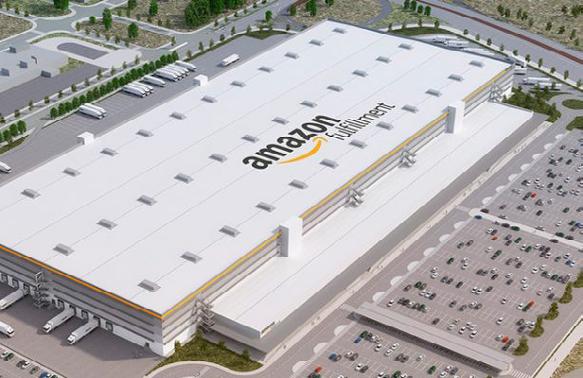

Amazon inaugurated its new 7,500 m² logistics center, “DXX2,” in Coyoacán, Mexico City, as part of a 50 billion peso investment to expand its operations nationwide. The facility will generate over 3,000 direct and 18,000 indirect jobs in the capital alone. During the launch, Amazon reaffirmed its commitment to Mexico’s economic development, highlighting a total of over 10,000 direct jobs created across the country. City officials praised the project as a model of public-private collaboration that promotes shared prosperity. The center strengthens Mexico City’s role as a logistics hub and boosts regional supply chain efficiency amid growing demand and nearshoring trends.
SOURCE: CLUSTER INDUSTRIAL

The Comprehensive Plan for Eastern State of Mexico, presented by Governor Delfina Gómez and backed by President Claudia Sheinbaum, involves an investment of over 75.7 billion pesos across 121 initiatives aimed at improving employment, infrastructure, security, health, and education in 10 key municipalities. The federal government will contribute 60% of the funding, with the state and local governments providing the rest. Major investments include hospital construction, new schools and universities, expanded water infrastructure, and thousands of new educational opportunities. The plan seeks to address decades of neglect and urban poverty affecting over 10 million residents. Projects will be implemented over three years, with initial efforts already underway. President Sheinbaum emphasized that the plan addresses a historical debt to the region, which has seen rapid urban growth but lagging development. This ambitious strategy aims to transform the region into a hub of opportunity and social justice through coordinated federal, state, and municipal collaboration.
SOURCE: CONTRALÍNEA
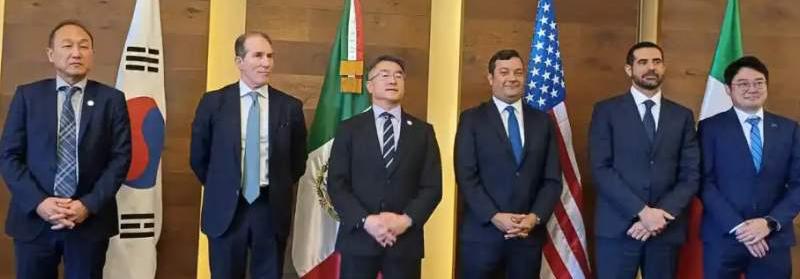
Pacífico Mexinol is set to begin construction on what will become the world’s largest green methanol facility, located in Topolobampo, Sinaloa. Backed by over $3.3 billion USD in capital and led by U.S.-based Transition Industries LLC, the project represents a major milestone for sustainable chemical manufacturing in Mexico.
Strategically positioned at the Topolobampo port, the plant will have the capacity to produce 350,000 metric tons of green methanol annually from renewable sources, as well as 1.8 million metric tons of blue methanol derived from natural gas with integrated carbon capture.
Construction will be carried out by a global consortium composed of Samsung Engineering (South Korea), Techint Engineering and Construction (Mexico and Italy), and Maire (Italy), leveraging advanced technologies and international expertise to bring the project to life.
Japanese company SK Tec has inaugurated the expansion of its Irapuato plant with a $19.8 million investment, creating 80 highly specialized jobs and reinforcing Guanajuato’s role as a key automotive hub in Mexico. Operating in the region since 2013, SK Tec produces stamped, welded, assembled, and injection-molded plastic parts for automotive interiors, doors, hoods, and seats. The company now employs 200 people and supplies major clients such as Aisin Mexicana and TS-tech. Guanajuato’s Secretary of Economy highlighted that the expansion reflects business confidence and strengthens the local supply chain. This investment stems from a recent trade mission to Japan led by Governor Libia Dennise García, aimed at securing strategic investments.
SOURCE: CLUSTER INDUSTRIAL, MEXICO INDUSTRY
UNDERSTANDING RULES OF ORIGIN: HOW TO LEVERAGE FTAS TO CUT MANUFACTURING COSTS
Understanding Rules of Origin is essential for manufacturers seeking cost efficiency through Free Trade Agreements like the USMCA. This blog breaks down how to properly certify goods, avoid unnecessary tariffs, and align supply chains to meet origin requirements.
KEY TAKEAWAYS:
• Use FTAs to reduce duties and improve competitiveness
• Align sourcing strategies with regional content thresholds
• Understand certification methods to ensure compliance
• Avoid costly mistakes from misclassification or incomplete documentation
• Identify value-adding activities that qualify goods for preferential treatment

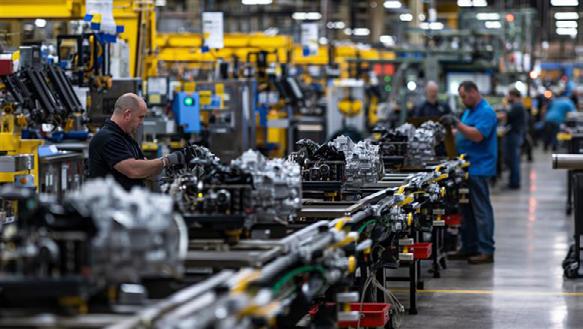
Tariffs are redefining automotive manufacturing strategies across North America. This blog explores how global trade tensions, especially U.S. tariffs on China and Europe, are influencing investment flows into Mexico’s automotive sector.
KEY TAKEAWAYS:
• OEMs and Tier 1s are realigning operations to mitigate tariff risks
• Mexico’s FTAs offer a competitive edge for exports
• U.S. policy decisions are accelerating nearshoring momentum
• Tariff engineering is becoming a strategic necessity
• Supply chains are shifting toward regional integration
VISIT OUR WEBSITE TO EXPLORE OUR FEATURED BLOG POSTS, EBOOKS, AND CASE STUDIES PRODENSA.COM/INSIGHTS